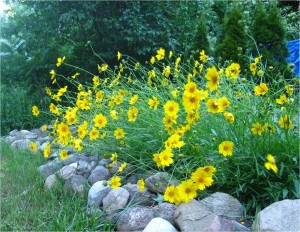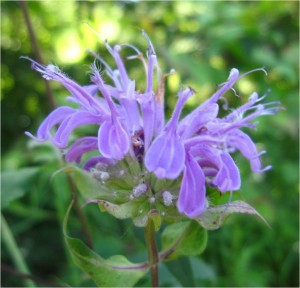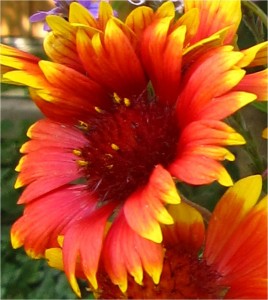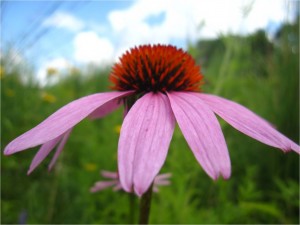Bees are Like Children
You’ve planted up the perfect vegetable garden. Rows are straight, every seed has germinated and is well on its way to becoming part of a delicious meal, and the rodents have been keeping quiet (so far).
You’ve probably also noticed the flowers have started to open, meaning your plant is looking for some friendly visitors to help them out. Bees and other pollinators are out and about this time of year and, if the rain holds off long enough for you to putter about, you may just see a few.
If you’re not seeing very many, you may want to reconsider your garden design for next year. Remember this: bees love pollen and nectar (depending on the kid of bee). And bees are like children: you must promise dessert if you want them to eat their veggies.
The Dessert
What does a bee like for dessert? Native flowers. Sure, honeybees aren’t native but, in all fairness, they’re not the ones doing most of the pollinating anyway. Unless you bring in honeybees, your flowers are being pollinated by a whole host of native bees that, honestly, do a much better job.
Consider a few of these bee favourites for next year’s vegetable garden. You don’t necessarily have to plant them right IN the garden, just in the area. The bees will bumble and zip about and your vegetables will be found.
Coreopsis: bright yellow, full sun, grows really well in sandy soils
Beebalm: light purple or red, full sun to partial shade, grows almost anywhere
Blanketflower: yellow and red, full sun, loves sandy soils
Purple Coneflower: pink/purple, full sun to partial shade, sand to clay
Smooth Aster: light blue/purple, full sun to partial shade, sand to clay
New England Aster: purple, full sun to partial shade, sand to clay but needs soils to be a little moist
You’ll notice, too, that other pollinators will show up to feed on the sweet treats you’re providing: flies, butterflies, moths, and beetles love these flowers and are all excellent pollinators. Give it a try: mix and match your veggies with some native flowers and enjoy a hefty harvest next year. Trust me, your bee children will love it.







